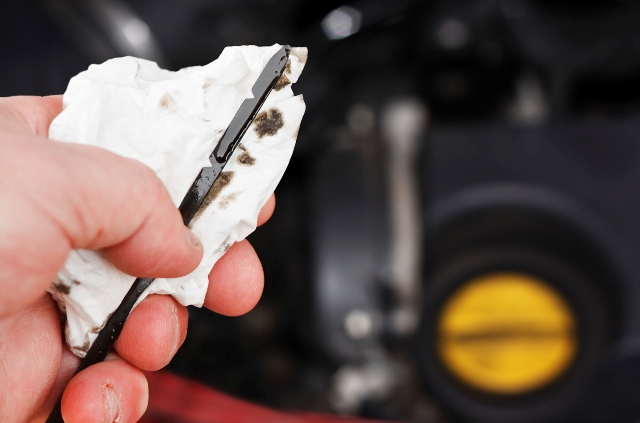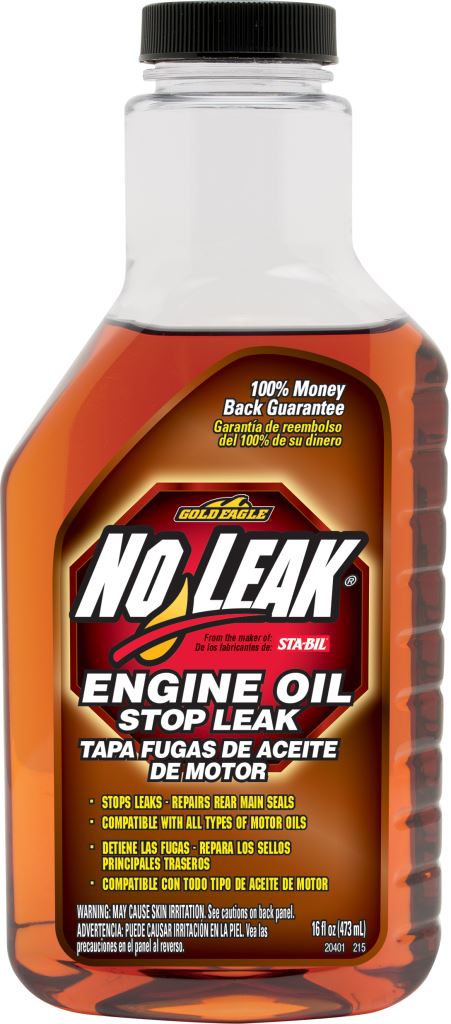Engine Oil Leaks – What Causes Leaks and How to Fix Them
Short of your vehicle suddenly exploding in a spectacular Hollywood-type ball of fire, there are a few common issues that cause the most stress for vehicle owners: strange noises from the engine compartment, flat tires, cars that won’t start and then the most worrisome of all – finding oil spots where you park your vehicle.

What Causes Oil Leaks
Oil leaks can be frustrating because they don’t come from one place on a car. If you have an oil leak, you’re almost guaranteed a trip to a mechanic. All cars develop them, from minor leaks to slow drips that develop into a major threat to a vehicle.
While difficult to find on a vehicle, you can take some of the guesswork out by considering the most common causes:
The Oil Filter
Oil filters wear out, can be aligned improperly or be loose. Some vehicle models have additional parts in the filtration system, at the filter, that can leak. Whether you do it yourself, or it’s done by a mechanic, the filter should be changed every time you change the oil and should be checked for proper fitting.
The Oil Drain Plug
At the base of the oil pan is a drain plug, accessible from the underside of your car. Worn out thread, misaligned threads, or a loose oil drain plug can be a common oil leak cause. It’s easy to spot as there would be fresh oil around the plug, and on the side of it where it drips down.
The Oil Filler Cap
Oil doesn’t just drip down. If your filler cap, covering where you put oil into the engine, is missing, loose or broken then the pressure of the engine could cause oil to spill out when the vehicle is running.
The Valve Gasket
The gasket is probably the most common cause of oil leaks, especially in older vehicles or vehicles that are used frequently & have a high number of miles. The gasket is a seal that joins the head two metal parts of the engine, such as the between the block and the head(s) as well as the engine block and the oil pan. Over time, and with a buildup of sludge (oil that breaks down over time due to prolonged temperature exposure), the pressure increases which can cause leaks and failures in the seal of the gaskets.
Sometimes damage to the oil pan on the underside can cause minor to severe leaks. This occurs when running over road debris, large rocks if traveling off-road, and even accidentally hitting an animal while traveling. Any of these can dent the oil pan and compromise the seal or oil drain plug.
How to Stop Oil Leaks
 Proper, regular maintenance and routine oil changes can eliminate the problems outlined above and help you avoid further damage to primary engine components, essentially preventing damage and leaks before they happen. A good approach is to use a regular maintenance checklist to stay on top of this. Even a vehicle storage checklist can help you focus on critical areas for maintaining your car.
Proper, regular maintenance and routine oil changes can eliminate the problems outlined above and help you avoid further damage to primary engine components, essentially preventing damage and leaks before they happen. A good approach is to use a regular maintenance checklist to stay on top of this. Even a vehicle storage checklist can help you focus on critical areas for maintaining your car.
If you do develop a leak in any of the above areas you can self-service your vehicle with parts purchased at a local automotive store. If time, experience or a lack of tools limit what you can do at home then the mechanic is an option.
If the leak is small, using a stop leak additive such as No Leak. These stop leak products are safe to use on your vehicle and are effective for most leaks. As the seals age on your vehicle they can shrink, dry out and become brittle. A stop leak additive softens and conditions old gaskets, causing them to swell again and prevent further leaking. Keep in mind these additives may not work for more severe leaks.
Additives like No Leak® work for most leaks and can last for months, or years, depending on the age of the vehicle and the degree of normal wear. It can be a temporary solution until you can replace the seals, or you can continue using the product again if a leak begins to appear.






Thanks good info
Thanks for highlighting the causes which might be responsible for the leakage of engine oil. It should not be overlooked and leakage should be repaired immediately to ensure the smoother performance of the vehicle. Any signs which indicate that a vehicle is suffering from mechanical deformities should not be ignored. The reason behind the appearance of such a sign needs to be identified and repaired immediately to keep the vehicle in working order.
i have an engine isuzu 4jg2 gear type none turbo, i have oil leaks problem i already change the oil pan, oil seals, and gaskets, the by pass hose of an alternator but still having some leaks in the sections between the block and the gear cover….
Thanks, for educating young engineers and automatic repairers. So good maintenance of engine is best way to it’s long life.